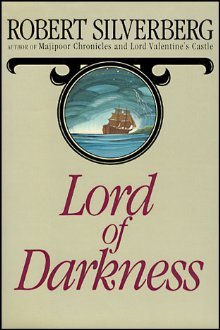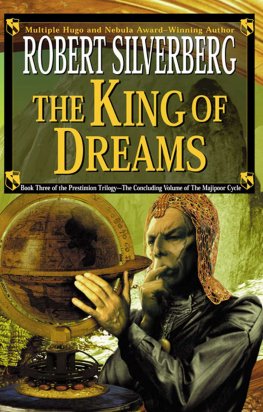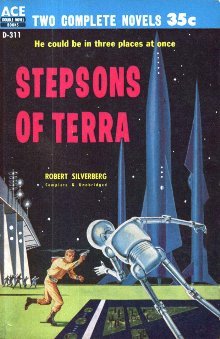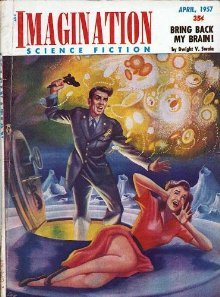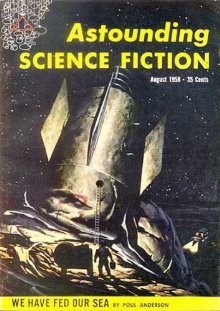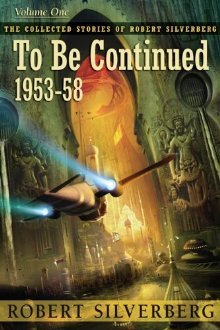Robert Silverberg - A Time of Changes
Here you can read online Robert Silverberg - A Time of Changes full text of the book (entire story) in english for free. Download pdf and epub, get meaning, cover and reviews about this ebook. year: 1971, publisher: Doubleday, genre: Science fiction. Description of the work, (preface) as well as reviews are available. Best literature library LitArk.com created for fans of good reading and offers a wide selection of genres:
Romance novel
Science fiction
Adventure
Detective
Science
History
Home and family
Prose
Art
Politics
Computer
Non-fiction
Religion
Business
Children
Humor
Choose a favorite category and find really read worthwhile books. Enjoy immersion in the world of imagination, feel the emotions of the characters or learn something new for yourself, make an fascinating discovery.

- Book:A Time of Changes
- Author:
- Publisher:Doubleday
- Genre:
- Year:1971
- Rating:5 / 5
- Favourites:Add to favourites
- Your mark:
- 100
- 1
- 2
- 3
- 4
- 5
A Time of Changes: summary, description and annotation
We offer to read an annotation, description, summary or preface (depends on what the author of the book "A Time of Changes" wrote himself). If you haven't found the necessary information about the book — write in the comments, we will try to find it.
A Time of Changes — read online for free the complete book (whole text) full work
Below is the text of the book, divided by pages. System saving the place of the last page read, allows you to conveniently read the book "A Time of Changes" online for free, without having to search again every time where you left off. Put a bookmark, and you can go to the page where you finished reading at any time.
Font size:
Interval:
Bookmark:
Robert Silverberg
A Time of Changes
For Terry and Carol Carr
Introduction
Somebody once wrote, so I am told, a novel that contains no word that uses the letter e. When I first heard about it, the idea gave me the shivers; for writing novels is hard enough work using ones free range of vocabulary, and tossing in a handicap like that is enough to guarantee a case of terminal hiccups, at the very least. Spare me from the urge to attempt such stunts, I prayed.
And then, years later, I found myself embarked on a novel in which it was forbidden for any character to refer to himself in the first person.
I had been working on it for a week or so, struggling against the strange constraint of avoiding the vertical pronoun, when I remembered that e-less novel. I broke into a sweat and wondered how I would ever get to the other end of my book with my sanity reasonably intact; and then I took a deep breath, told myself that I was writing my book this way neither as a stunt nor as an act of penance, and got back to work. And eventually finished the novel and had it published and won a Nebula award for it as the best science fiction book of 1971, and lived happily ever after, and Ill never ask of myself a similar exercise again.
The purpose of avoiding the use of I in A Time of Changes is not to show my own cleverness, of course, but to represent, by a grammatical approximation in an equivalent language, the linguistic practices of an extraterrestrial culture so repressed, so enchained by rigorous self-effacement, that all references to self are taboo and must be handled euphemistically. It was not a particularly original notion there are existing cultures on our own world, notably among the Eskimo, where first person singular is considered improper usage but I thought it was reasonably new to science fiction. In this I was wrong, naturally. (Absolutely new ideas in science fiction are a lot less common than is generally suspected. I mean altogether new ideas, not merely ingenious variants on familiar ones; the last one of these I can think of is Bob Shaws slow glass concept, and that was a dozen years ago. It will probably turn out that something much like slow glass figures in an 1883 Jules Verne novel, anyway.) My central situation in A Time of Changes had at least one well-known previous use in a book that I had read in 1953 and long since forgotten. This was Ayn Rands Anthem, a short novel first published in 1946 and dedicated to Rands usual theme, The world is perishing from an orgy of self-sacrificing. In the dystopian world of Anthem the collective society has triumphed, and the first person singular pronoun has been abolished; the narrator speaks of himself as we, as does everyone else in that society, but eventually he discovers the Unspeakable Word and launches a revolution intended to restore the sacred rights of the individual ego. This is not quite what I was doing in A Time of Changes, where the problem is not all-engulfing collectivist socialism but rather a dour, ritualized, formalized pseudo-modesty that conceals ferocious macho self-assertiveness. But the narrative effect is the same. Rands character and mine struggle toward liberation of self, moving through grammatical thickets, hers speaking of himself as we and mine speaking of himself as one, and there is a similar rigid courtliness to the style. What struck me as eerie, though, was the similarity between Rands opening lines and my own. When I rediscovered Anthem in 1972, almost twenty years after I had last read or thought of it, and several years after I had written A Time of Changes, this, to my astonishment, was its opening paragraph:
It is a sin to write this. It is a sin to think words no others think and to put them down upon a paper no others are to see. It is base and evil. It is as if we were speaking alone to no ears but our own. And we know well that there is no transgression blacker than to do or think alone. We have broken the laws. The laws say that men may not write unless the Council of Vocations bid them so. May we be forgiven! ()
It is dark here. The flame of the candle stands still in the air. Nothing moves in this tunnel save our hand on the paper. We are alone here under the earth. It is a fearful word, alone. The laws say that none among men may be alone, ever and at any time, for this is the great transgression and the root of all evil. But we have broken many laws. And now there is nothing here save our one body, and it is strange to see only two legs stretched on the ground, and on the wall before us the shadow of our one head.
Now look at the opening page of A Time of Changes. The resemblance is startling Rands narrator alone in a tunnel, mine in a desert shack, each beginning his tale by speaking of transgressions against a rigid society. I had forgotten even the existence of her book when I began my own, and unless you would argue that whatever we read is permanently recorded in some cerebral niche and is apt to come floating to consciousness at any time subsequent, the similarity can only be considered coincidence, but a strange one. (The rest of my book is scarcely at all like Rands thank goodness.)
I wrote A Time of Changes in the summer of 1970, and it was, I suppose, my response to all that had happened in the last few years of the 1960s, that time of changes for so many of us. I had been as rigid and controlled as anyone else in the old pre-Beatle, pre-psychedelic, pre-revolutionary world of the Eisenhower years, and I had been rocked by transformations in the crazy decade that followed, transformations that had altered my attitude toward life, my way of dress, my work, and just about everything else. In 1970 I hovered emotionally and spiritually somewhere between New York and California, between the old life and the new, and I oscillated uncertainly, not yet having opted fully for California; and A Time of Changes is the record of that inner upheaval, altered by the metaphors of science fiction but thoroughly recognizable for what lay behind them. (Some of my more straight friends misunderstood the book, thinking it was merely a tract urging wider and wilder use of psychedelic drugs. That wasnt my intention at all, but it was hard to convince them.)
The novel was serialized in Galaxy Science Fiction, my main magazine publisher at that time, and early in 1971 was published in a hardcover edition by the Science Fiction Book Club, with the first paperback edition appearing that summer. In April of 1972 the members of the Science Fiction Writers of America awarded it a Nebula as best novel of the year and, a few days after I had begun my new existence in the San Francisco area, I flew down to the awards ceremony in Los Angeles to collect my handsome lucite trophy. There was something deliriously appropriate, I think, about being handed a Nebula for A Time of Changes the very week that I had broken from my old confined life in New York to breathe the fresher, stranger air of California.
Robert Silverberg
Oakland, California
May 1978
1
I am Kinnall Darival and I mean to tell you all about myself.
That statement is so strange to me that it screams in my eyes. I look at it on the page, and I recognize the hand as my own narrow upright red letters on the coarse gray sheet and I see my name, and I hear in my mind the echoes of the brain-impulse that hatched those words. I am Kinnall Darival and I mean to tell you all about myself. Incredible.
This is to be what the Earthman Schweiz would call an autobiography. Which means an account of ones self and deeds, written by ones self. It is not a literary form that we understand on our world I must invent my own method of narrative, for I have no precedents to guide me. But this is as it should be. On this my planet I stand alone, now. In a sense, I have invented a new way of life; I can surely invent a new sort of literature. They have always told me I have a gift for words.
Font size:
Interval:
Bookmark:
Similar books «A Time of Changes»
Look at similar books to A Time of Changes. We have selected literature similar in name and meaning in the hope of providing readers with more options to find new, interesting, not yet read works.
Discussion, reviews of the book A Time of Changes and just readers' own opinions. Leave your comments, write what you think about the work, its meaning or the main characters. Specify what exactly you liked and what you didn't like, and why you think so.

